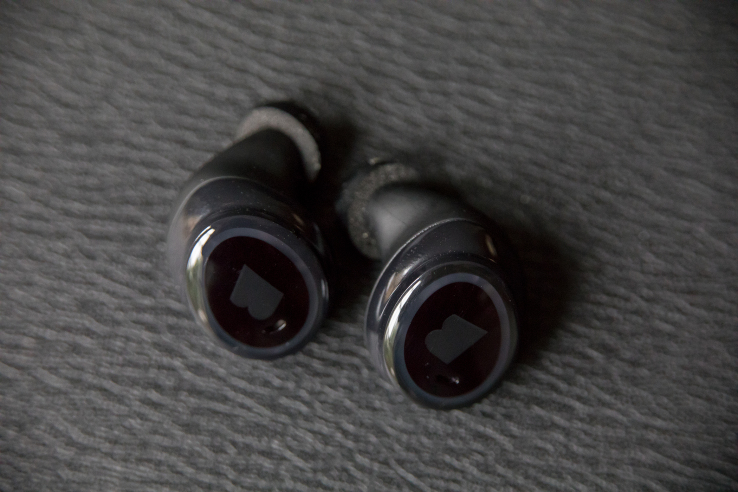
According to Bragi, headphones are just the “tip of the iceberg” of what the company’s been working on for the past four years. Last month at CES, the company announced Project Ears, an initiative aimed at enhancing hearing aid capabilities in the smart headphone category. This week at MWC, it’s pulling the curtain back on even broader ambitions to provide AI solutions to third-party IOT developers.
The German startup is only just beginning the process of discussing the verbosely and somewhat repetitive titled “Bragi Intelligent Edge featuring Bragi nanoAI offering” publicly at this week’s show. As such, details are still kind of vague about the whole thing. I had the opportunity to speak to a couple of folks at the company today, including the CEO and I’m still working on precisely what it’s promising companies here.
A rep showed me short video it has yet to post online that features a sort of glowing disk that’s used as a sort of remote control for IOT devices. It can also be attached directly to different devices to bring them into the ole’ internet of things. This is one of a few ways the technology could potentially utilized. It’s also possible that companies could opt to build them directly into their devices.
“At some point we may not be a hardware company anymore,” Bragi EVP Darko Dragicevic told TechCrunch, adding that a comparison to Google would be apt. “That was the plan from the beginning. That was not really a secret.”
The system, the company explains, was developed on the Bragi Dash headphones, which it says were as much a proof of concept for the technology as anything. From this week’s press release,
The Dash was designed as a development platform for Bragi Intelligent Edge. Twenty-seven different embedded sensor streams coupled with embedded storage, enabled Bragi to fast track the development of Bragi Intelligent Edge in real life environments.
Of course, how much of this is was really the plan from the start is up for debate. Bragi was early to the Bluetooth earbud category and remains one of the better products in the space, but it’s since been eclipsed by bigger names like Apple and Google. Since launching, the company has sold around 200,000 units — solid enough numbers for a hardware startup, but not exactly AirPod numbers.
Growth could ultimately mean branching out. Help perform complex AI and ML tasks on-board, rather than transferring that information to a cloud-based server could ultimately be a big part of the company’s plans to grow, moving forward.
“If you look at all the IOT devices out there, they deliver a continuous flow of information out of your home, your office or your body,” says Bragi CEO Nikolaj Hviid. “Privacy is an issue. And you have an issue with latency and you have an issue with offline capabilities.”
The company expects the first devices to deliver Bragi’s Intelligent Edge platform to arrive in 2019.


